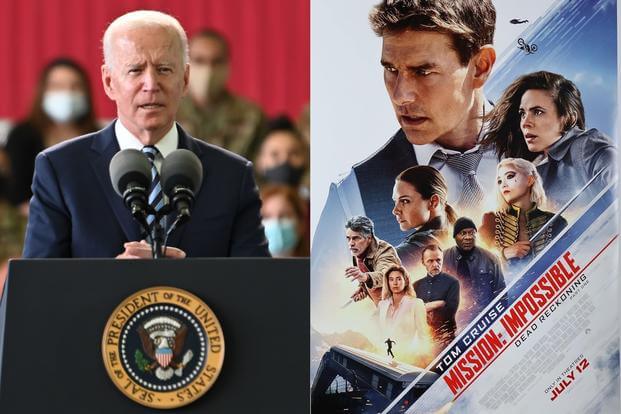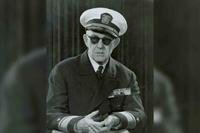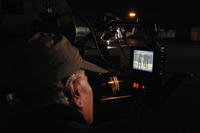President Joe Biden's latest push to manage the rapid proliferation of artificial intelligence and its impact on national security was in part inspired by a viewing of the latest installment of the "Mission: Impossible" movie franchise, which features Tom Cruise ("Top Gun: Maverick") going up against a rogue AI, according to a White House official.
Speaking to The Associated Press, deputy White House chief of staff Bruce Reed recalled that while Biden has grown concerned over the use of AI to generate fake images of himself or clone a user's voice, it was a screening of "Mission: Impossible -- Dead Reckoning Part One" at Camp David that particularly alarmed the president.
In the film, Cruise and his Impossible Mission Force team race against time to contain "the Entity," a Russian-made AI that turns on its creators and sinks a next-generation submarine, killing all on board, within the first few minutes of the movie.
"If he hadn't already been concerned about what could go wrong with AI before that movie, he saw plenty more to worry about," Reed, who watched the movie alongside Biden, told AP.
Those concerns culminated for Biden in an Oct. 30 executive order on AI designed to shape how private companies can develop (and profit off of) new technologies without risking national security. Specifically, AI developers must allow the U.S. government to evaluate safety data and ensure that new tools don't jeopardize public safety.
"One thing is clear: To realize the promise of AI and avoid the risk, we need to govern this technology," Biden told reporters at the White House ahead of his signing, calling the order the "most significant action any government anywhere in the world has ever taken on AI safety, security and trust."
That Biden was spurred to action by a Tom Cruise joint shouldn't necessarily come as a surprise. In fact, he wasn't the first president to enact a major change to U.S. government policy as the result of a screening at Camp David.
According to "Dark Territory: The Secret History of Cyber War," President Ronald Reagan took in a screening of the techno-thriller "WarGames" at Camp David when the film hit theaters in June 1983. The film features Matthew Broderick ("Ferris Bueller's Day Off") as a hacker who breaks into North American Aerospace Defense Command's supercomputers and nearly triggers a global thermonuclear war.
A few days after watching the movie, Reagan (himself a former Hollywood movie star) queried the chairman of the Joint Chiefs of Staff, Army Gen. John William Vessey Jr., about the potential national security implications of hacking from both civilians and state actors.
"Could something like this really happen?" Reagan asked, according to "Dark Territory." "Could someone break into our most sensitive computers?" It took one week for Vessey to come back with an answer: "Mr. President, the problem is much worse than you think."
Reagan's viewing of "WarGames" ended up triggering a succession of government memos and studies that eventually resulted in the president's signing of a classified national security decision directive titled "National Policy on Telecommunications and Automated Information Systems Security" in September 1984 that significantly overhauled how the Defense Department handled computer and network security.
According to New America, a Washington, D.C.-based think tank, "WarGames" had an impact far beyond Reagan's desk, with clips shown to lawmakers in Congress as they debated anti-hacking legislation. Those anti-hacking laws would eventually become the Computer Fraud and Abuse Act that, established in 1986, forms the foundation of most computer-specific criminal laws in the United States.
Hollywood has long had an impact on public policy since its inception, if only by raising awareness of specific issues in the minds of voters and lawmakers. But based on the experience with Biden and Reagan, it appears there's a particular brand of action thriller that manages to break through at the presidential level. Here's hoping whoever's in charge of movie night at Camp David recognizes what an insane responsibility they maintain -- and uses it wisely.
-- Jared Keller can be reached at jared.keller@military.com.
Keep Up With the Best in Military Entertainment
Whether you're looking for news and entertainment, thinking of joining the military or keeping up with military life and benefits, Military.com has you covered. Subscribe to the Military.com newsletter to have military news, updates and resources delivered straight to your inbox.

















